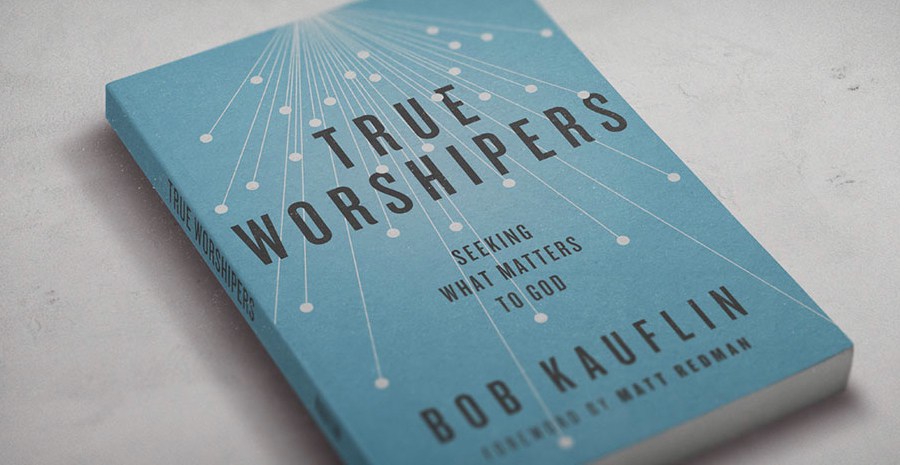Last week I interacted with a section from Bob Kauflin’s book True Worshipers. I took a look at some common questions that church-goers have in regards to singing. This week, as promised, I continue with the rest of the questions Kauflin deals with in the chapter called “Worship and Perseverance.”
Why do we sing so many old songs (or new songs)?
I love Kauflin’s answer to this question: “Objecting to songs simply because they're old is rooted in the same problem as objecting to new ones. We want to sing the songs we like. But the issue isn’t how familiar we are with the songs. The issue is whether we're going to take every opportunity as true worshipers to exalt God.”
What a great way to frame this seemingly unending new song/old song debate. What is important is the question Kauflin raises: Are you going to take this opportunity to exalt God? If we can exalt God with a song, we should; he is worthy. He is so infinitely and overwhelmingly worthy that we should feel compelled to worship him even with styles of music we don’t prefer.
What if I feel like a hypocrite when I sing?
We’ve all been here. Sitting in church, feeling distant from God, having lost most of the battles with sin the previous week, and the worship team is admonishing by word and example to sing praises in adoration to God. What are we to do? We sincerely do not want to be hypocrites; acting like a sinner Monday through Saturday and a saint on Sunday. Should we sing?
Kauflin suggests that we do sing, but that we do so after confessing our sin and resting in Jesus’s work on our behalf. Kauflin notes, “True hypocrites don’t struggle with their sin.” Kauflin is suggesting that if you are truly concerned with not playing the hypocrite, then you are concerned about your sin. So, confess the sin, confess your Saviour from sin, and get on with singing because “[w]holehearted expressions [of commitment] can actually help align our hearts with what God has done in us through the gospel.”
Kauflin gives a balancing warning in admonishing those in unrepentant sin to not try and fool others about our spirituality. And he adds, we should mix in requests for God’s grace to help us with expressions of commitment that we are singing. With these warnings in mind, however, we ought to keep singing.
What if the songs we sing are theologically shallow?
I’m thankful to say that this is rarely a problem at our church. We are blessed with worship teams that care about godly, biblically informed lyrics. Nevertheless, Kauflin’s advice for when we do encounter songs with shallow lyrics is, again, helpful: “Shallow or vague lyrics need never prevent us from importing biblical truth into the.” I love it. Redeem the song by free-styling some solid lyrics into it. Remember, Kauflin is approaching this question from the perspective of the singer; he’s giving counsel on what the singer should do. He’d be the last one to be OK with shallow lyrics from the perspective of the worship team or church. But don’t let these things stop you from adoring God through song.
What do I do during instrumental breaks?
Kauflin poses the dilemma this way: “what do we do when the instruments [without anyone singing] play for an extended portion of the song? Whether it’s an instrumental solo, or an extended turnaround, or a long ending, how can we respond?”
Kauflin encourages the reader not to become a spectator, fan, or check out in any other way because our aim should be to participate. He gives several options: listen to the music and thank God for blessing some with musical ability or for the gift of music, reflect on the words we just finished singing, pray, or even sing along with the music without drawing attention to ourselves. All good advice I think.
Kauflin ends this helpful section of his book with a final encouragement to keep us singing: “May we see every hindrance, distraction, and trial as a fresh opportunity to declare the excellence of him who called us out of darkness into his marvellous light.” To that I sing, “Amen. Amen. Amen.”




Leave a Comment